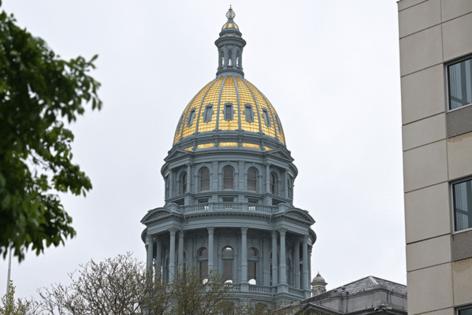Another artificial intelligence deal collapses -- as Colorado lawmakers' budget fixes near finish line
Published in News & Features
Colorado’s first-in-the-nation regulations on artificial intelligence may have to wait longer if the legislature approves a proposal advanced by the state Senate on Monday.
In a dramatic shift from Sunday night, when a deal on revamped regulations appeared within reach, Senate Majority Leader Robert Rodriguez gutted the bill. The measure, proposed during a mostly budget-focused special session, had been aimed at regulating AI and increasing transparency around its use to make decisions affecting Coloradans.
Instead, the bill as amended would simply delay, by several months, the implemation of a law passed 2024 that is supposed to go into effect next February.
Under Rodriguez’s proposal, which still needs to pass the state House, those regulations would take effect at the end of June — giving the tech industry, lawmakers, and public-interest and consumer-protection groups another chance during the next regular session to nail down how to regulate the growing, affluent industry. The regular session convenes in mid-January.
“Overnight, the tech industry decided that they were so unhappy with the compromise that had been achieved by consumer-protection organizations, educators, labor and business that they would rather return to the (existing rules),” said Rodriguez, a Denver Democrat and driving figure on AI regulations in the state.
The legislature met for its latest special session chiefly to address a $783 million budget deficit brought on by tax cuts and spending changes made by the federal government in July. But the AI regulations, which drew the ire of an industry that argues they are unworkable, was also specifically designated for new consideration in Gov. Jared Polis’ recall of the legislature this month.
Most budget-related bills finished
By the end of the fifth day of the session on Monday, the Democratic majority had sent to Polis the bulk of the bills they hoped would bite into the deficit. The single biggest revenue-raising measure, however, still needed at least two more votes.
The bills that have passed the legislature are:
•House Bill 1001, which makes permanent a limit on certain business income deductions for people making more than $500,000 per year.
•House Bill 1002, which cracks down on the use of foreign tax havens and adds several countries to that label.
•House Bill 1003, which ends a tax incentive for insurance companies that keep offices in the state.
•House Bill 1005, which ends a state subsidy to businesses for collecting sales taxes.
In total, those measures are expected to raise about $150 million. The fifth measure, House Bill 1004, would allow certain entities to sell tax credits that can be reclaimed at a discount in future tax years. Lawmakers expect that to bring in another $100 million, for a total of just over $250 million.
"Right now, we need to ensure that the families and the small businesses that truly need our help are getting it," said Sen. Lisa Cutter, a Jefferson County Democrat.
The revenue-raisers amount to nearly a third of the total $783 million budget gap. Polis' staff is preparing to address as much as a third of the gap through spending cuts. His office is expected to reveal its planned reductions later this week, after the revenue part has been adopted.
The rest of the hole will be filled from the legislature's piggy bank. That'll happen last: Whatever's not raised or cut will be pulled from the state's reserves. The governor's office has suggested roughly $320 million, which would reduce the current reserve level — about 15% of the general fund budget — by 2 percentage points.
That would mean his office was planning to propose about $200 million in spending reductions.
Liability at issue on AI
On the AI front, Rodriguez’s bill was sent Monday over to the House, where members have already debated a competing AI measure — one that had also been watered down to simply delaying the 2024 regulations, in that case until October 2026. The House planned to take up Rodriguez's bill in committee and potentially for an initial floor vote Monday night, which would make a final vote possible Tuesday.
How to assign liability for bias apparent in the use of AI to make decisions — between entities that use AI for things like screening job and rental applications and the entities that developed the AI tools — was a key part of Rodriguez's measure before its gutting.
But that has been a key sticking point between the dueling bills.
“A delay is the prudent thing to do,” Rep. William Lindstedt, a Broomfield Democrat and sponsor of the House bill, said. “We need to figure out a way where school districts, hospitals and other deployers aren’t left holding the bag for these regulations. We need to ensure that all stakeholders involved in this legislation are held equally accountable when bad things happen.”
________
©2025 MediaNews Group, Inc. Visit at denverpost.com. Distributed by Tribune Content Agency, LLC.







Comments